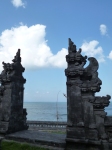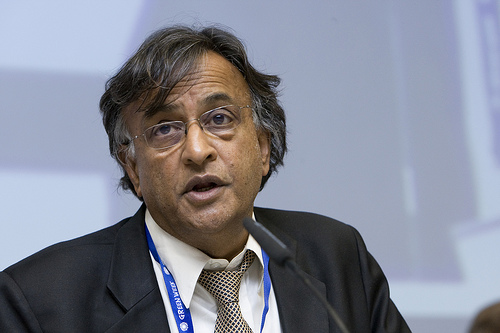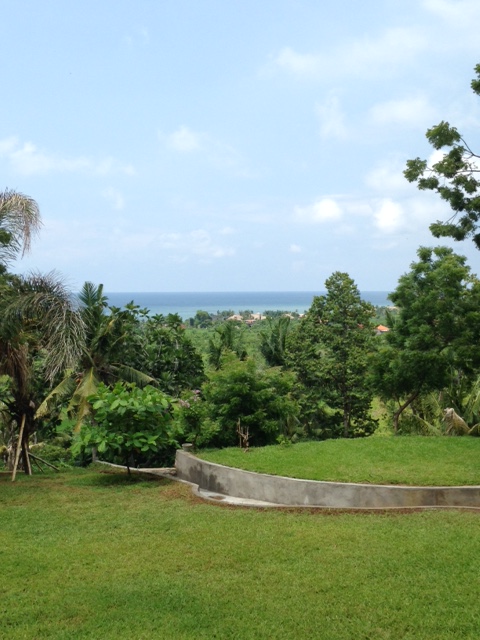
On a beautiful morning in March on the auspicious island of Bali, I met Dr. Mahendra Shah. Mahendra, dressed in a white kurta pyjama, greeted me with a kind smile and a soft handshake. I was a guest at the holistic Zen Resort in the North of Bali, which Dr. Mahendra Shah owns.
It didn’t take long to find out that Mahendra is a fascinating man, with ton of experience around the world, plenty of knowledge to share and yet, very, very humble.
I became insanely curious (who wouldn’t?) and decided to interview Mahendra. He is soft-spoken, has a look of a man who has lived many lives and I knew that behind his quirky smile there were many gems of his life story that I wanted to hear about.
Q: Who are you, what you do?
Mahendra: I’m of Indian origin, African upbringing, educated in England and with more than 30 years of international experience from development to emergency relief & rehabilitation to food security and sustainable development.

Q: What are your life-story gems?
Mahendra: In 1984 I was invited for a 4-days UN conference in Geneva to discuss measures for emergency relief for the African famine. At that conference I was introduced to George H. W. Bush, Vice President of the United States, by Mr Bradford Morse, Head of UNDP and Director of UN Nations Office of Emergency Operations in Africa to head Emergency Information Department in this special UN office to oversee the emergency relief operations across Africa. I had the responsibility to provide timely and credible information that mobilized over US$ 4 billion for emergency relief aid. The first report was delivered within 28 days after I took responsibility of the project.
In 1992 I had the honour to prepare and coordinate the Earth Summit summary report on Agenda 21 for Environment and Development and in 2002 at the Johannesburg Summit, I presented our report on climate change and agricultural vulnerability, emphasizing the urgency to put the issues of adaptation to climate change.
We talk about sustainable development, but what about “sustainable human beings”? By the age of 40 many people start experiencing problems. We turn to the modern medicine which is a “maintenance medicine” while the traditional medicine is a “preventive medicine”. These thoughts and the concept of the holistic approach to sustainable human health- mental, physical and spiritual were the trigger for the creation of Zen resort in Bali. So, here we are today.
The concept of the sustainable human being resonated strongly with me because I experienced it at many levels in Bali.
Q: Why Bali?
Mahendra: Bali is the island of Gods in any sense. Bali has a long tradition of holistic health. Look at the ocean, the trees, the mountains, the rice paddies, and the vineyards, the birds, the butterflies. There is so much beauty and harmony. This is a micro picture of the whole world. And when you look at it yourself and you say “This is so beautiful and I’m part of it. I’m beautiful, too.” And then you become vulnerable and then the healing from within starts.

Q: What are the two major problems the world is facing nowadays?
Mahendra: 1.Human health and 2. Destroying the environment
Q: What is your advice to everyone who wants to find this so-much-sought-for balance in life?
Mahendra: 1. Learn to breath. 2. Learn to mediate3. Do gentle exercise
Q: In the Western world, we know that in order to progress you have to fight for the things you want, be it a promotion or a career move or even a relationship. You teach the importance to letting go. So, how do you know when to fight for something and at which point you should just let go?
Mahendra: We lost sight of what we’re searching for. Bali is the only place in the world, where people will turn down a promotion. We should learn when to stop and say “enough is enough”.
“Enough is enough” echoed in my head for many days after that very special encounter. After all, when you hear this from someone who has achieved a great deal in his life and leads a happy sustainable life, you know that there is a lot of truth to this statement.
Dr. Shah’s photo courtesy: http://www.gemertsnieuwsblad.nl/2015/12/wie-is-dr-mahindra-shah/
Wise words from a kind and inspiring human-being.
Reblogged this on Stad van Morgen and commented:
Een reflectie van Dr. Mahendra Shah. Deze man wil graag in Gemert een Zen resort beginnen….
We need more people like Dr Mahendra and more resorts like Bali , all around the world to create a shift for a peaceful life and a happier society.
Totally agree, Sara! Once people experience this holistic approach, they are forever changed…
The increasing worldwide adoption of modern lifestyles has put the world on notice that no nation will have the resources to confront the consequential and emerging burden of the ailments and diseases such as cardiovascular diseases (already affecting about a billion people), diabetes mellitus( affecting some half a billion people) and mental stress (affecting more than a billion people). We turn to modern medicine to provide the drugs to keep us alive and “maintain” the health we have. Ten of year taking these drugs and unhealthy lifestyles cause a host of other health complications and more drug dependency. Everyone of us knows more than a few people who suffer as above !
It is time the world wakes up to the fact that we need to persuade both the practitioners of traditional medicine and modern medicine to heed their respective oaths of service and healthcare towards mobilizing their science, knowledge and practices to deliver the right mix of preventive and curative medicine towards restoring the health of the body, mind and spirit.
It is time to get off the money express of modern lifestyle and embrace the pathways to being sustainable human beings, living a life in harmony with yourself and with nature. Let us recall the words of the Dalai Lama
“Man sacrifices his health (“adopting modern lifestyles”) in order to make money. Then he sacrifices money to recuperate his health. And then he is so anxious about the future that he does not enjoy the present; the result being that he does not live in the present or the future; he lives as if he is never going to die, and then dies having never really lived”
I had one of the biggest blessings (not that I knew it at the time) and turning points in my life, when I had the very good fortune of meeting Mahendra at Zen Resort, Bali nearly 12 months ago.
I was stressed due to my job, mentally fatigued and had no clue about how to look after my spiritual and mental wellbeing.
After two blissful and life changing weeks spent with the Zen family I am a new woman, happy, more balanced and on a different path.
I can not agree more with Mahendra’s views with the challenges in our modern life. My commitment is to make a positive change where ever I can.
Just because one is small does not mean you can not do big things!
Thank you for sharing your interview and your time with Mahendra.